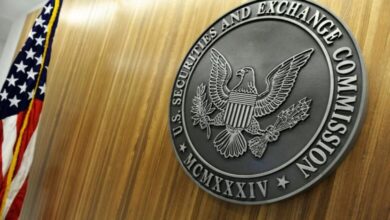DCMA to Launch Global CBDC at IMF Spring Meetings 2023

During the International Monetary Fund Spring Meetings 2023, the DCMA, an association consisting of sovereign states, central banks, commercial and retail banks, and other financial institutions, confirmed its plans to launch an international CBDC.
This new offering is designed to reinforce the monetary autonomy of participating central banks while complying with the cryptocurrency assets policy recommendations proposed by the IMF.
The Universal Monetary Unit (UMU) will serve as a legally recognized monetary commodity, utilizing the ANSI character Ü, capable of conducting transactions in any legal tender settlement currency, functioning similarly to a CBDC to enforce banking regulations and maintain the financial integrity of the global banking system.
Banks will have the ability to connect SWIFT codes and bank accounts to corresponding UMU digital currency wallets, enabling SWIFT-like cross-border payments over digital currency rails.
This innovative system will bypass the correspondent banking system and provide instantaneous, real-time settlements at the best-priced wholesale FX rates.
In an interview with the IMF, Tobias Adrian, a financial counsellor, highlighted the challenges of cross-border payments, citing their slow, expensive, and risky nature. With counterparties in different jurisdictions lacking a common settlement asset, trusted relationships are relied upon, which can be costly and lack common rules and governance.
Adrian suggests that a multilateral platform could improve cross-border payments, transforming foreign exchange transactions, risk sharing, and financial contracting.
Darrell Hubbard, the executive director of DCMA and chief architect of UMU, sees the IMF’s vision as precisely the solution that the DCMA is offering to central banks globally. Through a global localization public monetary system architecture, UMU can be configured to adhere to the central banking regulations of each participating jurisdiction.
Moreover, George Walker, a partner at Practus LLP specializing in international law, played a role in facilitating meetings between the DMCA and the IMF. Although the IMF has not officially endorsed the Universal Monetary Unit, it has reviewed the DCMA’s whitepaper and held weekly team discussions without raising any objections to UMU’s FX premium rates and its approach to monetary sovereignty, according to Walker.
Hubbard emphasized that UMU is not designed to disrupt the international monetary system. Rather, it strengthens it by helping the IMF achieve its goal of providing economic and financial stability to its member states.
UMU represents a significant shift in how cross-border payments are conducted and reduces the risk of seasonal and systemic local currency depreciation.
It is worth noting that a collaborative effort between the DCMA and several sovereign states has resulted in the drafting of model law legislation for the issuance of UMU.
The proposed legislation highlights that UMU should not be considered as a legal tender for domestic or international trade negotiations. Instead, it is suggested that UMU should be treated as a complementary commodity for storing value and used as a payment currency during settlement.
UMU aims to support central banking and regulated financial institutions with its features, which include a trusted consensus protocol, staked proof of trust protocol, and a multi-dimensional DLT capable of supporting any asset or liability ledger. In fact, it is regarded as ‘crypto 2.0‘ by the DCMA because it introduces a new wave of cryptographic technologies for a digital currency public monetary system with a widespread adoption framework that includes use cases for all constituencies in a global economy.
UMU has premium exchange rates integrated into its wallet, and merchants and trading partners can accept UMU for their goods and services at the equivalent market value priced in any national legal tender.





